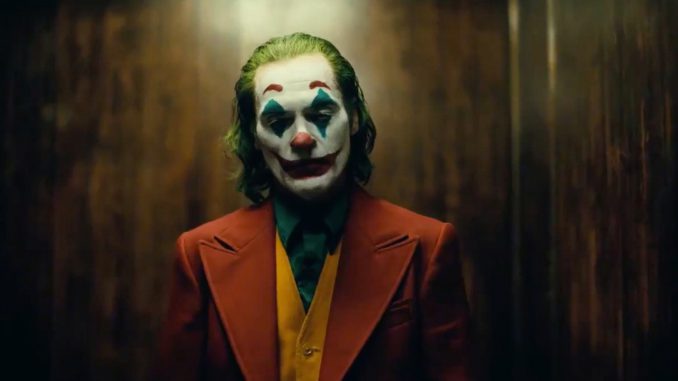
On October 4, 2019, the long-awaited Joker film was released in the United States. Directed by Todd Phillips, the film stars Joaquin Phoenix in the title role and has left moviegoers uneasy with its dark, disturbing tone to the point where it has sparked a fear nationwide. In the wake of this turbulent political time, movie theaters across the country have taken extra security measures to ensure safe showings of the film and prevent any violence that some believe the film may encourage. Joker is a call to action, but not in the way people think.
Many people fear that the release of this film will inspire attacks across the country, and in the worst-case scenario, crumble society altogether. While the film is certainly divisive, the real message behind it seems to be of a progressive nature that does not endanger society but holds it accountable. The shocking thing about the film is not how disturbing or violent it is, but how real it is. The film shines a light on mental illness, bullying, public humiliation, abuse, neglect, and political hypocrisy. Furthermore, it begs the question: Is society responsible for the creation of the Joker?
Surely, there is not a definite answer to this question, and it could be debated for hours. The film, however, seems to indicate that society is responsible for what it presents and how it enables the Joker’s actions. Through Arthur Fleck (the man who becomes the Joker), the film shows the audience a mentally ill man who was abused and neglected at a young age, bullied and assaulted constantly, publicly humiliated on television, and seen as less than human by Thomas Wayne, an uncaring, upper-class individual. Fleck seeks treatment for his mental illness, but this is short-lived when he learns that the budgeting for the program has been cut. In this way, the character’s origin is so alarmingly real that it makes the audience forget that they are watching a comic book movie.
For so long, comic book movies have been laughed at and rightfully so. The plotlines are often outlandish and unrealistic. The origins of its heroes and villains require us to suspend disbelief. The origin story presented in Joker does not. The film does not have “a spider-bite scene” that turns Fleck into the Joker and enhances his abilities or makes him physically superior. Instead, the Joker is born from events that could happen to and/or be set in motion by anybody.
In the film, the creation of the Joker can be attributed to characters that all come from different walks of life. The bullying and harassment on the street gives Arthur his motive and his rage. The abuse and neglect of his mother and her boyfriend at a young age gives Arthur his mental scarring that diminishes his sanity. The cutting of the funding for his treatment prevents Arthur from getting better and controlling his “negative thoughts.” The dismissiveness of Thomas Wayne dehumanizes Arthur and makes him truly realize how little the rich and powerful care about people like him. The abuse of power by Murray Franklin (played by Robert DeNiro) in the media sets Arthur over the edge and gives him a platform to become the Joker that society begins to idolize. Arthur’s coworker, Randall, literally puts the gun in the Joker’s hands. In many ways, society did create the Joker or at least the film makes it seem that way.
This film and its character shines a light on the cruelty of both those in power and those at the bottom, showing how anyone could be at fault. It is a wake-up call to not only support efforts to provide funding for mental health but also to show basic human decency to everyone around us. The Joker is not a character to be glorified, but one to be remembered. Societal mistreatment and/or mental illness is no excuse to commit acts of violence, but it is a devastating explanation for why they may happen. When the problem is ignored, it does not go away. Instead, it progresses and those who ignored it are responsible for the horrors that may result.
Joker is not a call to do harm, but a call to do better. The film is not meant to promote violence, but to prevent it. For a long time, society has mistreated and/or ignored the mentally ill and in many instances, the results have been catastrophic. Therefore, it is our responsibility to take Joker as a warning and pursue efforts that will ensure its events do not become a reality, especially in a world where there is no Batman to save us.
